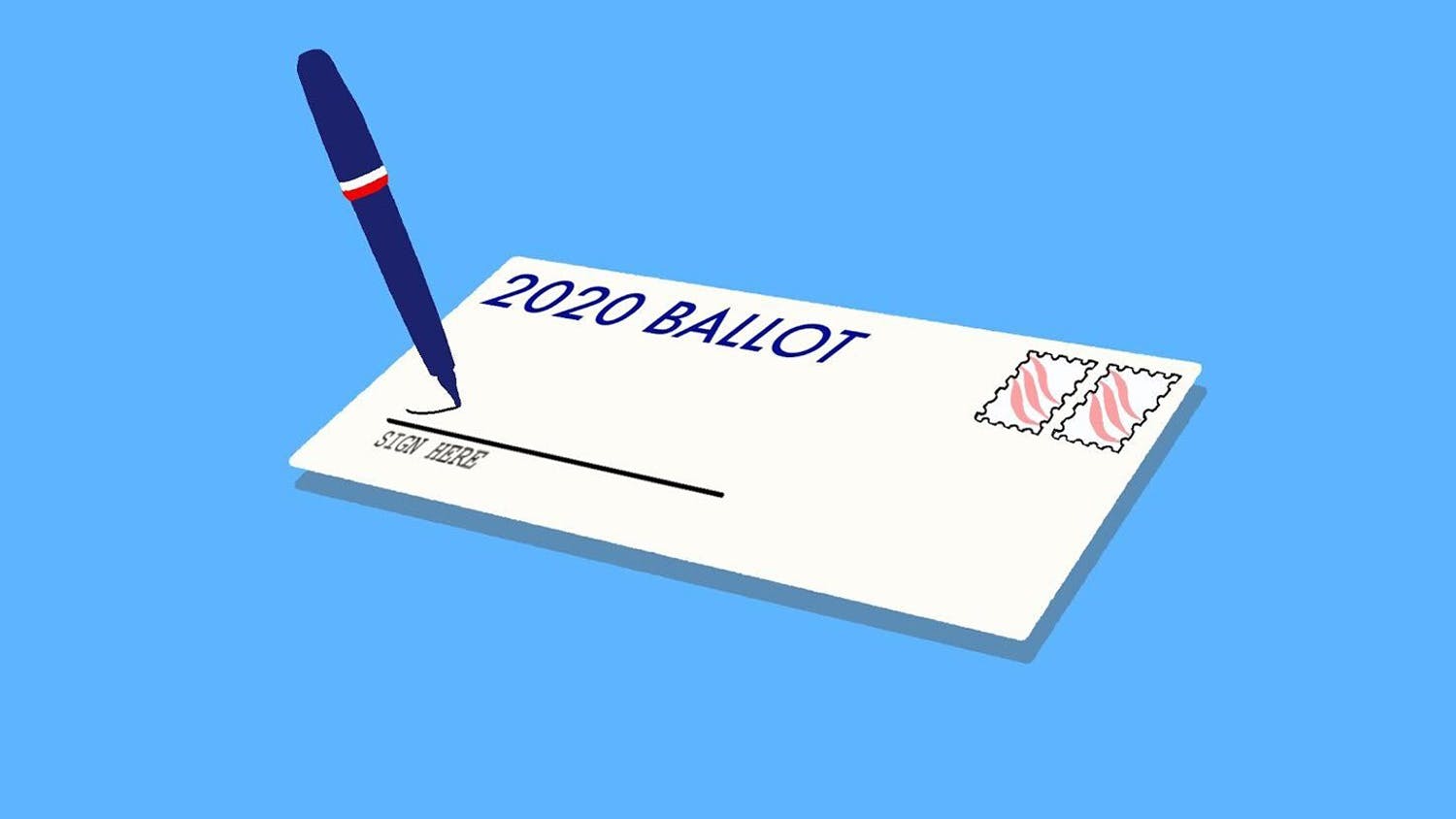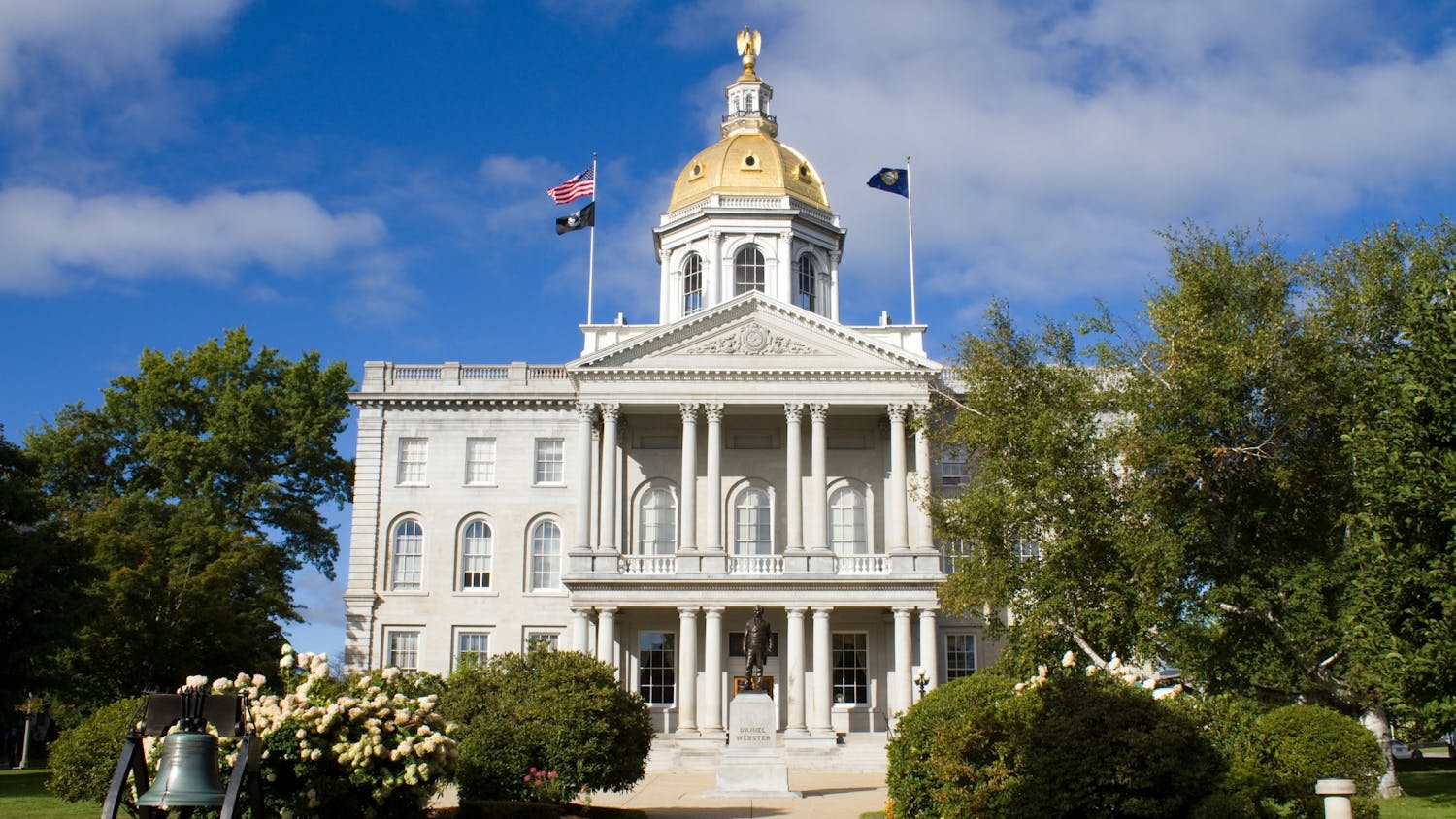I came to Dartmouth ready to take full advantage of the political sphere: I attended a few meetings of the College Democrats, and I even met Elizabeth Warren on my birthday. But I soon realized that the political scene at Dartmouth was too vile and pushy for me to muster.
Particularly distasteful was the College Democrats’ get out the vote campaign last fall, which gained attention for electioneering. Regardless of the partisan slant of those efforts, a far more dire issue persists in Dartmouth politics, especially in this election: Students are often pressured to vote in New Hampshire, leaving little acceptance for other options. Even despite COVID-19, chalk signs telling students to “Vote In NH” have popped up all around campus. Though students have the right to vote in New Hampshire, blindly expecting all students to vote here undermines the political goals that are common to the community.
The assertion that a vote in New Hampshire matters more than a vote in other states ignores the basic fact that in most elections, more than just the presidential election is up for grabs. First, allow me to point out the obvious: New Hampshire’s four electoral votes are nothing to fear — four electoral votes haven't been enough to decide a presidential election since 2000. Even then, Florida was more consequential in that election than New Hampshire, since Florida was called by a razor-thin margin. The emphasis on New Hampshire’s position as a swing state thus appears rather inconsequential. Of course, New Hampshire boasts the “first-in-the-nation” presidential primary, which carries a fair deal of weight in narrowing the field of candidates.
Regardless of the state’s relative significance, down-the-ballot elections for Congress and state office are far more important across the country than an election for one single office. The relevance of these offices is underscored by the recent passing of Supreme Court Justice Ruth Bader Ginsburg and the already nasty fight to replace her, which might take until next year to be settled.
As with any year, but especially this year, the deluge of competitive Senate and House seats is nothing to laugh at. Take, for example, South Carolina, where incumbent Sen. Lindsey Graham, a Republican who sailed to victory in 2014, is now “effectively tied” with his Democratic challenger, Jaime Harrison. Or, look at one of the several congressional districts in Texas that are very likely to flip. Regardless of what list or analysis captures your attention, New Hampshire Sen. Jeanne Shaheen and House Rep. Annie Kuster are more than likely going to keep their seats come November.
Of course, if polling data could talk, it would warn against trusting them like we did in 2016. But still, for many students, races in their home states are far more important for the country at-large than are races in New Hampshire.
To be fair, there are clear reasons that one might be convinced to register in New Hampshire, though individual decision-making must continue to supersede blind adherence. The most impactful reason for this stems from the power that local officials extend over our lives. I am particularly reminded of tensions between townsfolk and students concerning the COVID-19 pandemic. Though they seem to barely receive attention from campus political groups, elections for the Hanover Town Selectboard have clear implications for Dartmouth students, including a mask mandate and changes to rental rules.
Dartmouth’s role in the political machine is undeniable and remains an attractive factor for many students. All of Dartmouth’s political groups have the central aim of empowering our student body to be informed and engaged voters. Additionally, every political group recognizes the importance of the upcoming election for the future of the country. Instead of expecting students to vote in New Hampshire, everyone, from Democrats to Republicans to every group in between, must empower students to make informed electoral decisions about not only who to vote for, but where to vote.
Correction appended (Oct. 13, 2020): A previous version of this column stated that a margin of four votes has not decided a presidential election since the 1870s, implying that New Hamphire's results would not have altered the outcome of subsequent presidential races. The column has been updated to reflect that New Hampshire's voting outcome was sufficient to determine the outcome of the 2000 presidential election.



